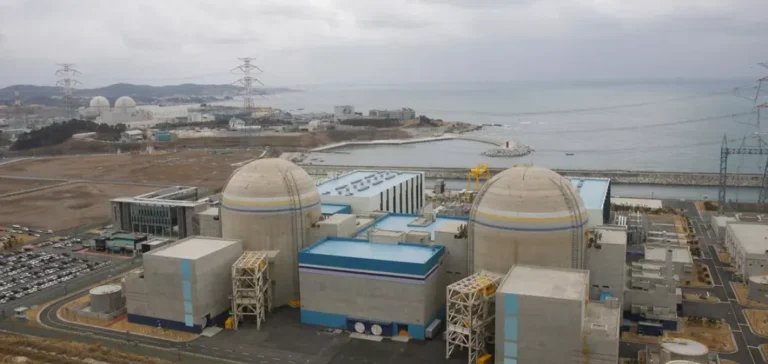The reactor vessel for Unit 1 of the El Dabaa nuclear power plant has been delivered to the construction site, located about 320 kilometres northwest of Cairo. It marks the first major equipment delivery for the plant, which is being developed under the direction of Russian state corporation Rosatom. Weighing 330 tonnes, the vessel was manufactured at the Izhora production facility over a 41-month period.
Maritime transport and dedicated logistics
The component, measuring 13 metres in length and 4.5 metres in diameter, was transported by sea from the port of Saint Petersburg to a purpose-built port on the Egyptian coast. The 20-day journey was carried out using a specially adapted heavy cargo vessel, followed by unloading with the help of a giant crane. The final leg of the journey will be completed by land transport to the reactor’s installation point.
Sherif Helmy, Chairman of the Nuclear Power Plants Authority, confirmed that installation of the vessel is scheduled for mid-November, adding that local teams are fully mobilised for this upcoming phase.
Deployment of VVER-1200 units
The El Dabaa site will host four VVER-1200 reactors, the same model already operating at the Leningrad, Novovoronezh and Ostrovets nuclear plants. First concrete for Unit 1 was poured in July 2022, followed by the remaining units, with Unit 4 starting construction in January 2024. The simultaneous construction of all four units supports Egypt’s target to generate 9% of its electricity from nuclear power by 2030.
Under the 2017 contracts, Rosatom is responsible for the design, construction and supply of nuclear fuel for the plant’s entire operational lifetime. The agreement also includes the development of a spent fuel storage facility, the delivery of storage containers, and the training and technical support of Egyptian personnel for the first ten years of operation.
Long-term operational outlook
The delivered reactor vessel is designed for an initial operational life of 60 years, with the potential to extend to 80 years. Rosatom has previously stated its goal to extend the operational life of its next-generation nuclear power plants to 100 years. The El Dabaa project is the first nuclear power station on the African continent since the Koeberg facility was commissioned in South Africa nearly four decades ago.
Alexey Kononenko, Vice President of JSC Atomstroyexport and Director of the El Dabaa project, described the delivery as “a milestone moment”, noting that the international team is now approaching the year’s most significant production event: the placement of the vessel into its final design position.






















